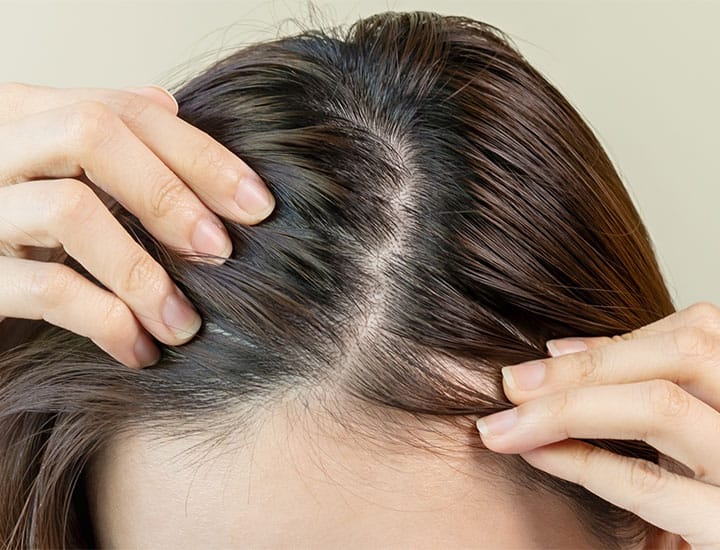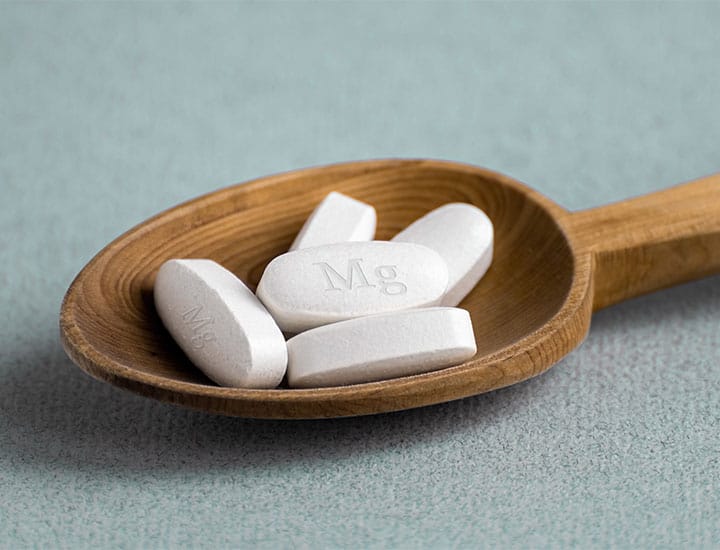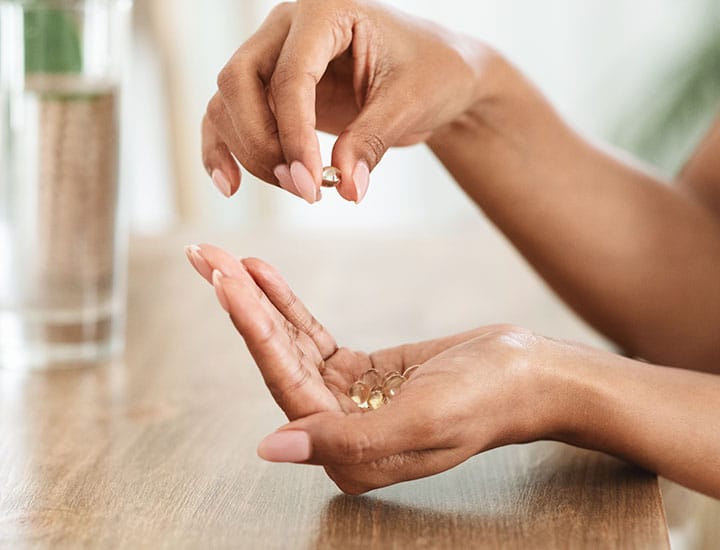The market is saturated with supplements — all kinds of supplements, from those that claim they can help you get to sleep to those that swear they can make your hair grow faster and thicker. It’s not always easy to make heads or tails of these options or to figure out which are worth your time and money and which will probably result in very little change.
When it comes to your hair, you may be experiencing thinning hair as a result of genetics, medications you’re taking, hormonal changes that happen after pregnancy and while breast feeding, or even stress. It’s tempting to take a pill and hope it can solve your hair problems for you so that you wake up with thicker, fuller hair and regrowth. But experts say it’s important to temper your expectations. And because the supplement market is unregulated, it’s equally important to remember: some hair supplements are a scam. These are the ones that may not be doing anything positive for your health.


Gummy Hair Supplements
They taste great and they make taking supplements a whole lot easier, but the influx of gummy hair supplements in stores and online aren’t always everything they claim to be. For starters, gummy supplements contain sugar and ingredients like glucose syrup and gelatin. And many contain fewer amount of vitamins and minerals, so even if they’re claiming they contain something like biotin, it may not be enough biotin to truly reap its benefits.

Another problem with gummy supplements, and many other hair supplements, is that they often contain vitamins and minerals that are linked to hair health. Biotin, zinc, and vitamin E are often ingredients that supplements boast that they contain. But unless you are actually deficient in these minerals, taking more of them isn’t going to make you grow more hair.

Loading up on minerals — the more is more concept — isn’t always a good thing and isn’t always better for your health. For example, an abundance of biotin can negatively affect your thyroid and even your heart. The daily recommended dosage of biotin is 0.03 milligrams, but many supplements contain more than that.
Care should also be taken before purchasing any old collagen supplement that boasts hair growth. Some collagen powders can be contaminated with things like mercury, lead, and even arsenic.

Another thing to be careful of when relying on supplements for hair, skin, or nails: they should never be thought of as a replacement for a good balanced diet. The best way to obtain the vital nutrients that your body needs is to get them through whole foods like vegetables, proteins, and good fats.

Before you start on any new supplement, it’s a good idea to visit your dermatologist or general practitioner. Ask them to identify the root cause of your hair loss so that you can get a better handle on which treatments are most effective for you. If you do have a vitamin or mineral deficiency, this could be all it takes to address it (and a doctor will likely suggest a supplement that isn’t a gummy). But you could also be suffering from intense stress that better responds to ashwagandha. Or your dermatologist may recommend a topical treatment to tackle hereditary thinning.
Bottom line: It’s always better to get a professional healthcare provider’s take on your situation before spending money and time on supplements that may not work.


























